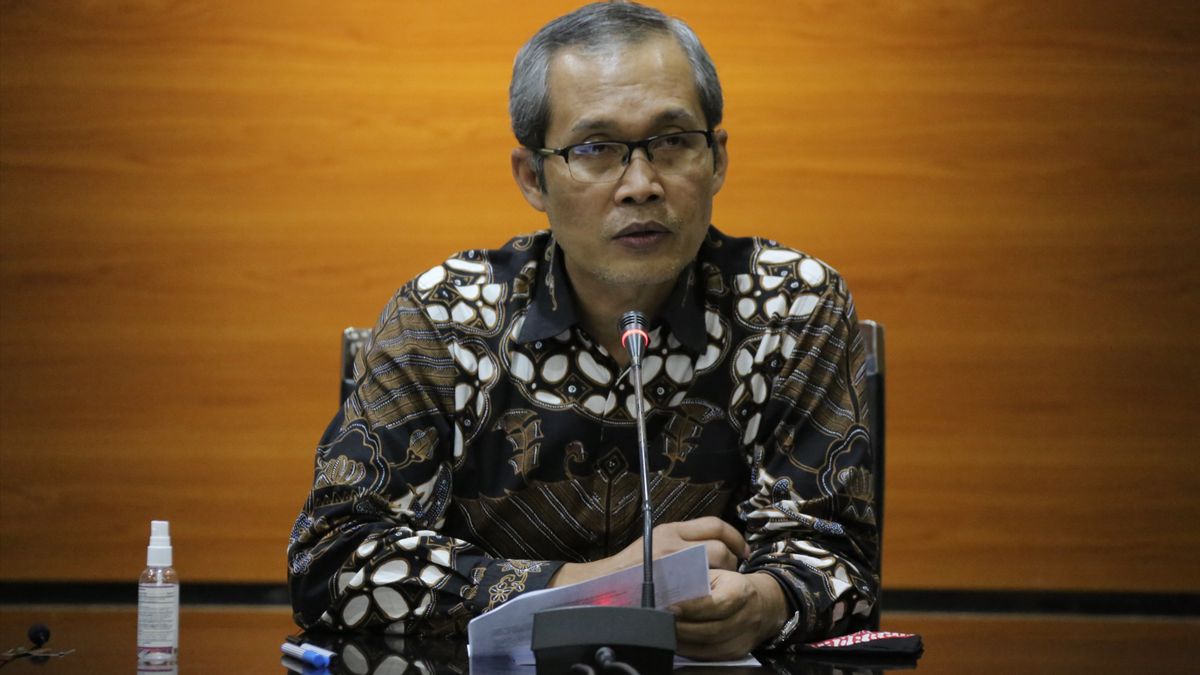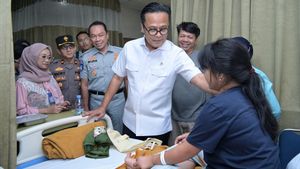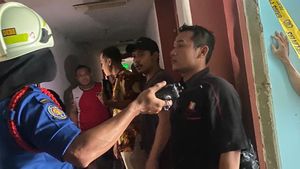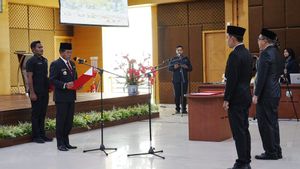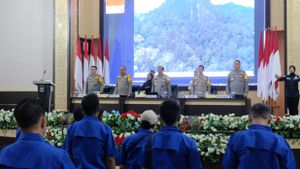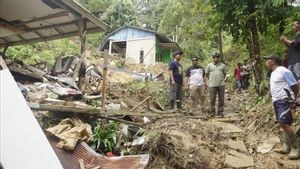JAKARTA - The Corruption Eradication Commission (KPK) explained the polemic that occurred due to changes in the internal organizational structure which was regulated through Commission Regulation (Perkom) Number 7 of 2020.
One of the changes that occurred was the presence of special staff and the addition of a number of fields in the structural which made it fatter.
Deputy Chairman of the KPK Alexander Marwata initially explained that the change in organizational structure through the Perkom occurred as an effort to organize the organization to implement Law Number 19 of 2019 concerning the Second Amendment to Law Number 32 of 2002 concerning the KPK. This arrangement, he continued, was carried out by continuing to pay attention to the strategic plan of the KPK leadership for the 2020-2024 period and was formed through three approaches.
"The first approach is through anti-corruption education or the usual preventive approach to eliminate the desire to commit corruption," Alexander said in a press conference broadcast on the KPK RI YouTube account, Thursday, November 19.
Second, through system improvements or policy improvements. The last is through a prosecution approach in the form of investigations, investigations and prosecutions or repressive measures to create a deterrent effect so that people are afraid to carry out the criminal act of corruption.
Although many parties consider this Perkom to make KPK internals fat, but he claims this is done to increase the effectiveness and efficiency of carrying out its duties. In addition, in the process of establishing a Perkom, the KPK has also held discussions with a number of parties. Moreover, the organizational arrangement opens up space for the addition and deletion as well as the merger of several existing positions within the anti-graft agency internal.
"The Corruption Eradication Commission has held discussions with related agencies, including the Ministry of Political Affairs and the Ministry of Law and Human Rights regarding structural changes. This organizational arrangement opens space for additional services as well as the elimination of several positions and several positions are included in other group positions," said Alex.
Alex also explained the problem of the existence of special staff at the KPK. According to him, the existence of this special staff will replace the advisory function which has been revoked in Law Number 19 of 2019 or the new KPK Law.
"Stafsus as previous KPK advisors were not attached to individual commissioners," he said.
This staff of five, he continued, would later focus on assisting the KPK in five strategic areas which so far have often used external experts or experts. The five fields in question are technology and information, natural resources and the environment, corporate law and transnational crime, management and human resources as well as economy and business.
Regarding the parties who will fill the post of staff, Alex emphasized that they would not be recruited to become the state civil apparatus (ASN). Those who fill these positions will be contract workers who will be recruited through a transparent process.
"The presence of staff will not be ASN and more to contract employees because it is needed periodically," he said.
Previously reported, through Perkom Number 7 of 2020 concerning the Organization and Work Procedure of the KPK, this anti-graft agency added 19 positions and positions not listed in Perkom Number 03 of 2018.
The 19 new positions and positions are Deputy for Education and Community Participation, Directorate of Educational Networks, Directorate of Socialization and Anti-Corruption Campaigns, Directorate of Community Participation Development, Directorate of Anti-Corruption Education and Training Networks.
Then there is the Secretariat of the Deputy for Education and Community Participation, the Directorate of Anti-Corruption for Business Entities, the Deputy for Coordination and Supervision, the Directorate for Coordination and Supervision of Region IV, the Secretariat for the Deputy for Coordination and Supervision, the Information Management Directorate, the Directorate for Corruption Detection and Analysis, and the Center for Strategic Planning for Eradication. Corruption and Inspectorate.
In addition, the Perkom, which was signed by KPK Chairman Firli Bahuri on November 6 and promulgated on November 11, also regulates the presence of special staff who are directly responsible to the leadership.
Article 75 of Perkom 7/2020 states that this special staff number at most five people with various expertise such as information technology, natural resources and environment, corporate law and transnational crime, management and human resources, economy and business, and / or other expertise according to the needs of the KPK. They will later be appointed and dismissed by the Secretary General.
Meanwhile Article 76 details the duties and functions of special staff, such as giving consideration to strategic issues to preparing materials for KPK leadership meetings.
The English, Chinese, Japanese, Arabic, and French versions are automatically generated by the AI. So there may still be inaccuracies in translating, please always see Indonesian as our main language. (system supported by DigitalSiber.id)
